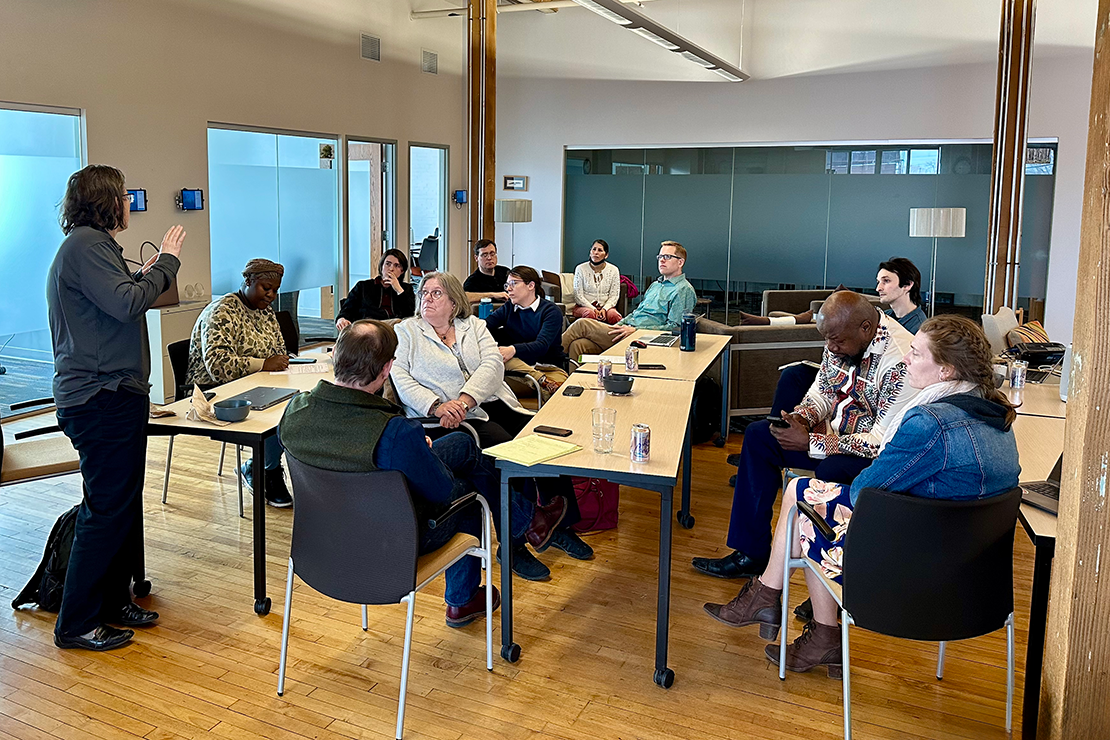Breaking down Minnesota’s cumulative impacts law

Last spring, Minnesota lawmakers passed the Frontline Communities Protection Act – a groundbreaking law designed to help communities that face higher levels of pollution. When implemented, some businesses may require additional environmental analysis when seeking air permits.
The law follows similar moves made in New Jersey and Massachusetts to pass cumulative impacts legislation.
Environmental Initiative has been participating in conversations about how Minnesota will design and implement the new law through a process known as rulemaking.
Why it matters: We don’t all breathe the same air
Air pollution doesn’t occur in isolation or stay in one place. It comes from obvious places like smokestacks at industry facilities or vehicle exhaust pipes, and from smaller, more dispersed sources like gas powered lawnmowers, backyard fires, and small businesses.
Across the country, air pollution disproportionately impacts residents of color, low-income residents, and people with disabilities. These inequities are rooted in discriminatory land-use, zoning, and housing practices including redlining. The new law is meant to ensure communities already experiencing pollution are not increasingly overburdened.
To learn more about air quality, health, and air pollution inequities, explore the Minnesota Pollution Control Agency (MPCA) and Minnesota Department of Health’s Life and Breath Report.
How will the cumulative impacts law affect us?
The law only applies to air permits for projects inside or within 1-mile of designated environmental justice areas in Rochester, Duluth, and the seven-county Twin Cities area. These zones were defined by lawmakers during the 2023 legislative session.
According to the MPCA, approximately 120 facilities including things like landfills, power plants, refineries, and manufacturing plants could be impacted after implementation. When a facility within the designated areas seeks a new or expanded air permit, it may have to conduct a cumulative impacts analysis.
If required, the cumulative impacts analysis looks at the broader picture, considering not just the facility’s potential emissions but also nearby existing pollution sources and the vulnerability of the community.
In simple terms, if a facility’s pollution contributions are found to be too great, leading to a “substantial adverse impact” on the community, two paths forward exist: the permit can be denied, or the facility can enter into a community benefit agreement. This agreement might involve measures to mitigate the environmental impact related to the permit and improve community health.
Rulemaking: What is being decided
There are still many key details and elements of the law that need to be finalized through the rulemaking process, like:
- Defining benchmarks: When is the cumulative impacts analysis required? A project being in the designated environmental justice area doesn’t necessarily mean the analysis is required. The MPCA has discretion over that decision.
- Cumulative impacts analysis content: What is included in the analysis?
- Defining “substantial adverse impact”: What conditions, criteria, or circumstances make the adverse impact substantial?
- Community benefit agreements: What is included in a community benefit agreement and what is the process to create and enact one?
Between now and April 2026, the MPCA is gathering ideas, data, and approaches to answer these questions and more so that they can effectively implement the rule in Minnesota. They aim to have a finalized implementation plan available for public comment in May 2026.
Join the conversation
As part of rulemaking the MPCA is hosting a series of co-learning events.
Environmental Initiative has been organizing in-person watch parties to view each virtual conversation and discuss as a group.
Join Environmental Initiative and leaders from community groups, nonprofits, businesses, and government agencies for the next viewing on April 30 from 1-2:30 p.m. The next session is focused on community benefit agreements. A short discussion will follow the viewing, allowing attendees to hear reactions to the webinar from various perspectives.
Contact Eben Kowler, partnership manager with questions or RSVP for the event on April 30.